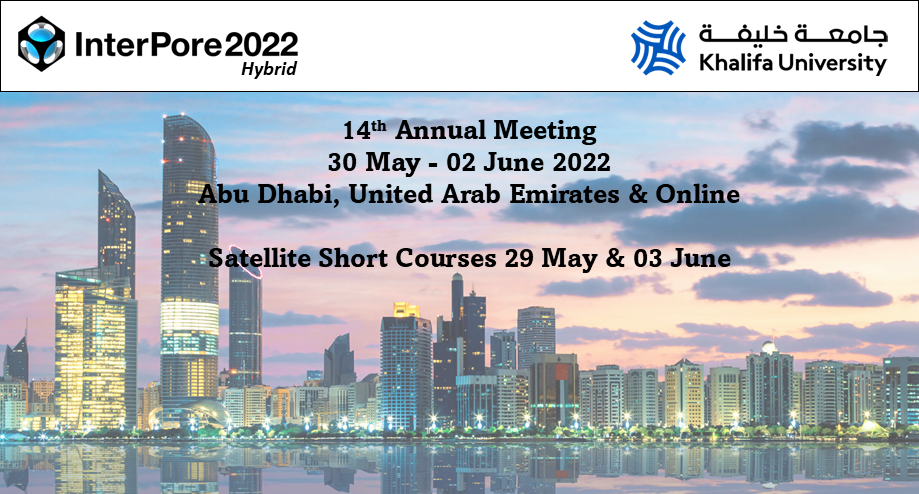Speaker
Description
Permeability of digital rock can be predicted by the pore-scale simulations based on the Navier-Stokes equation for rock characterization. Besides the complicated pore geometry, the main challenge is the large number of spatial grids/voxels needed to make the digital rock representative. The computational cost can thus be very high, even using the efficient Lattice Boltzmann method that has almost linear scalability for parallel computation. In this study, a novel method is proposed to simplify the 3D pore-scale simulation to multiple decoupled 2D ones based on the Navier-Stokes equation. Each 2D simulation provides the velocity distribution over a slice. The obtained velocity at each voxel is then used to assign a local permeability distribution on the corresponding slice. The interaction between neighboring slices neglected in the simplification is then modeled by constructing the 3D local permeability distribution using the 2D ones, from which the effective block permeability of the original 3D digital rock can be computed via solving the Darcy equation. By this decoupled simulation approach, the expensive simulation based on the Navier-Stokes equation is conducted only on 2D domains, and the final 3D simulation of Darcy equation using the finite difference method is very cheap. A large number of 3D digital rocks of both sandstone and carbonate are tested using the proposed approach and the computed permeabilities are all in good agreement with those of direct 3D pore-scale simulations of using the Lattice Boltzmann method. The computational cost is found to be significantly (about an order of magnitude) reduced. The proposed method will be useful for assessing large-scale digital rocks, where the cost of direct 3D pore-scale simulation becomes prohibitive, if not impossible.
| Participation | Online |
|---|---|
| Country | China |
| MDPI Energies Student Poster Award | No, do not submit my presenation for the student posters award. |
| Time Block Preference | Time Block A (09:00-12:00 CET) |
| Acceptance of the Terms & Conditions | Click here to agree |









